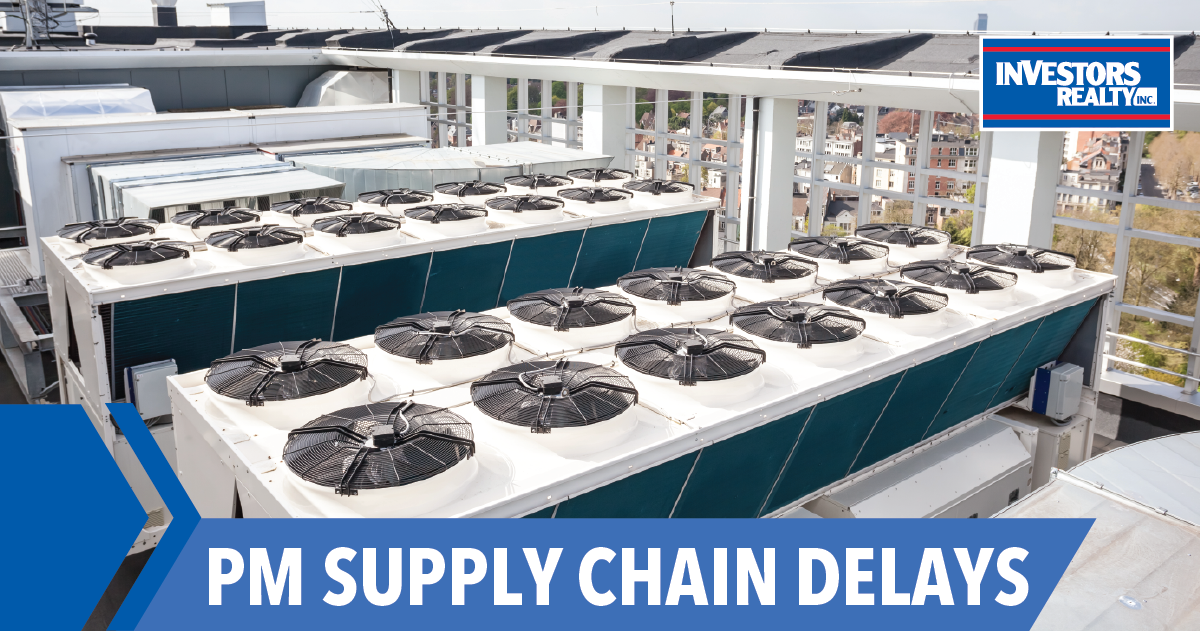
Today, one of the biggest challenges faced by property managers is the increased costs and lead times for HVAC replacements and repairs. In recent months, the cost to replace a rooftop unit averaged about $1,000 to $1,200 per ton. Fast forward to 2022, and the cost can range anywhere from $1,600 to $2,500 per ton, and lead times on new units now range from eight to 40+ weeks, depending on the unit size and manufacturer. Some replacement parts also have extended lead times. For example, economizers and hail guard lead times are ranging from 12 to 14 weeks. This means a new HVAC unit can be installed. However, a secondary visit to install these additional components is necessary and results in additional costs. Property managers have been faced with repairing older units that really need replacing because of these lead times. During the high heat of the summer months, it is difficult for tenants to operate without air conditioning for extended periods while waiting for a unit or parts to be delivered. The other reality is that some parts or replacement units will not make it in time to beat the heat, leaving tenants without cooling during the hot summer months. There are concerns that this trend will continue into the winter months.
During the winter, the concern changes from how to cool a space to how to heat it. If a space does not have heat, we worry about habitability for the tenant and the risk to the asset. Lack of heat can result in frozen pipes. And frozen pipes in a single space can be catastrophic to a property and affect every tenant in the building.
Our team of property managers is working diligently to get ahead of the potential issues this winter. The initial step involves working with our partner HVAC companies to inspect and assess the possible risks. Secondly, the property manager will review and recommend to the owner or tenant the vital repairs that they should make now. Tenants who are responsible for maintaining the HVAC units within their spaces should also consider an early inspection to help circumvent surprises this winter. Some landlords with larger holdings may consider ordering a couple spare units to have on hand.
The last and probably most important step is to have conversations with owners and tenants early to educate them on the changing market. Staying informed and having a plan will help them get quick results during a future time of need.
This article appeared in our company newsletter in September of 2022. Please click here to download the entire newsletter.

